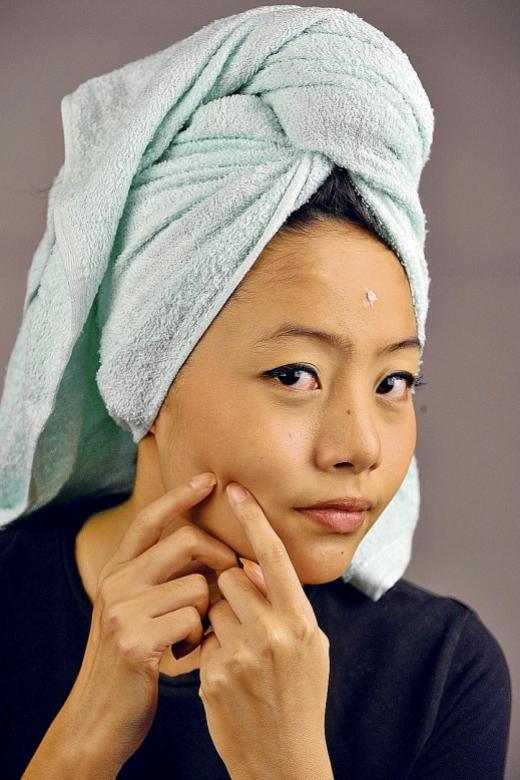Follow these lifestyle and skincare tips to be pimple-free for good
Follow these lifestyle and skincare tips to be pimple-free for good
Genetics, hormones, diet and environmental factors all affect the sebum production in your face, so while there isn't a one-size-fits-all solution to acne, here are some tried-and-tested habits to help you win the battle of the zits.
SLEEP MORE
Yes, beauty sleep is real. Not getting enough hours every night is a big factor for many acne sufferers. This is because the less you sleep, the less time your skin has to repair itself and your skin produces more sebum, which clogs your pores and causes breakouts. You should get seven to nine hours of sleep every night to promote a healthy skin barrier function.
FIX YOUR DIET
You are what you eat - a diet high in refined carbs like white rice, bread and pasta and processed foods like deep fried foods and instant-anything will definitely not help your acne.
These foods cause a spike in your blood sugar, which triggers a boost in insulin. When there is too much insulin in your bloodstream, it can lead to the growth of pore-clogging cells and increase activity in oil glands.
Stick to whole grains, legumes, lean protein and loads of fresh veggies instead. This not only helps your skin, but also improves your overall health and helps with weight loss too.
STICK TO YOUR ROUTINE
After a long day at work, you may be tempted to skip the tedious skincare routine and head straight for bed.
Don't. All the grime, sweat and make-up from the day will clog your pores, guaranteeing you'll wake up to a fresh crop of pimples.
At the very least, wash and tone your face, apply acne treatment potions and moisturise before hitting the sack.
If that still sounds like too much, consider having a stash of efficient, multi-purpose skincare products for nights like these so you're not tempted to skip your routine.
BE STRICT ON CLEANLINESS
Anything that touches your face should be cleaned frequently. We're talking make-up brushes and applicators (once a week), pillowcases (once a week) and towels (use a fresh one daily).
Many are also unaware that we touch our faces frequently - resting our head in our hands, massaging our foreheads, even face-palming.
DON'T OVER-CLEANSE
You would think that the more you clean your face, the less likely you will break out.
Not really. When you strip your face of essential oils and moisture, you not only irritate your skin and damage your skin's barrier, but encourage breakouts. When your skin is too dry, your body produces more oil to compensate, which causes you to break out.
Wash your face just twice a day (and always after workouts), and follow up with a hydrating toner and a lightweight/oil-free moisturiser.
USE GENTLE PRODUCTS
If your skin is acne-prone, the last thing you want to do is aggravate it further by using make-up and skincare products with pore-clogging, breakout-inducing ingredients.
If your skin is more sensitive, then learn about the ingredients that go into your products and how they might affect your skin.
Common ingredients that cause your skin to break out are artificial colouring, lanolin, mineral oils, petroleum, isopropyl myristate, fragrances, cocoa butter and vegetable oil.
Opt for all-natural non-comedogenic products.
APPLY SUNSCREEN DAILY
Yes, even on rainy and cloudy days. Sunscreen is vital to your skin's health as it protects your skin barrier from UV damage.
Sun-damaged skin is more prone to acne as it is thinner and weaker, thus less efficient at healing and protecting itself.
Plus, all the UV exposure will make your inflamed breakouts look even worse as it triggers even more melanin increase.
Opt for non-comedogenic sunscreen, or moisturisers that also provide SPF protection.
CUT DAIRY
Dairy products like soft cheeses, milk and ice cream aggravate acne by causing inflammation in the body. There have been studies that show that the hormones in cow's milk react poorly with the hormones in our own bodies, and increase sebum production. Try cutting dairy out of your diet for three weeks and see if it makes a difference.
Get The New Paper on your phone with the free TNP app. Download from the Apple App Store or Google Play Store now




